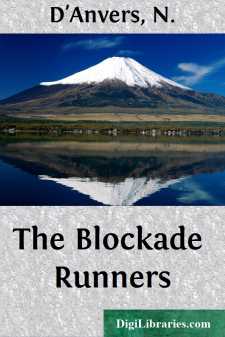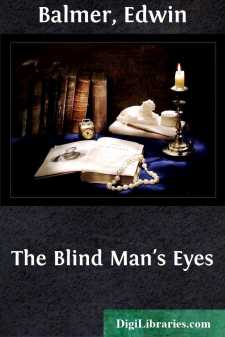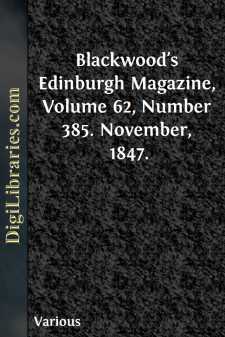Categories
- Antiques & Collectibles 13
- Architecture 36
- Art 48
- Bibles 22
- Biography & Autobiography 813
- Body, Mind & Spirit 142
- Business & Economics 28
- Children's Books 15
- Children's Fiction 12
- Computers 4
- Cooking 94
- Crafts & Hobbies 4
- Drama 346
- Education 46
- Family & Relationships 57
- Fiction 11829
- Games 19
- Gardening 17
- Health & Fitness 34
- History 1377
- House & Home 1
- Humor 147
- Juvenile Fiction 1873
- Juvenile Nonfiction 202
- Language Arts & Disciplines 88
- Law 16
- Literary Collections 686
- Literary Criticism 179
- Mathematics 13
- Medical 41
- Music 40
- Nature 179
- Non-Classifiable 1768
- Performing Arts 7
- Periodicals 1453
- Philosophy 64
- Photography 2
- Poetry 896
- Political Science 203
- Psychology 42
- Reference 154
- Religion 513
- Science 126
- Self-Help 84
- Social Science 81
- Sports & Recreation 34
- Study Aids 3
- Technology & Engineering 59
- Transportation 23
- Travel 463
- True Crime 29
Sort by:
by:
N. D'Anvers
Chapter I THE DOLPHIN The Clyde was the first river whose waters were lashed into foam by a steam-boat. It was in 1812 when the steamer called the Comet ran between Glasgow and Greenock, at the speed of six miles an hour. Since that time more than a million of steamers or packet-boats have plied this Scotch river, and the inhabitants of Glasgow must be as familiar as any people with the wonders of...
more...
Chapter One. In Raybeck Square. “Oh, you wicked old woman! Ah, you dare to cry, and I’ll send you to bed.” “No, no, auntie, don’t, please. What will dear Isabel think? You’re not going to spoil a delightful evening?” “Of course she is not. Here, old lady; have another glass of claret—medicinally.” Dr Chester jumped up, gave his sister and the visitor a merry look, took the claret to...
more...
by:
Edwin Balmer
CHAPTER I A FINANCIER DIES Gabriel Warden—capitalist, railroad director, owner of mines and timber lands, at twenty a cow-puncher, at forty-eight one of the predominant men of the Northwest Coast—paced with quick, uneven steps the great wicker-furnished living room of his home just above Seattle on Puget Sound. Twice within ten minutes he had used the telephone in the hall to ask the same question...
more...
CHAPTER I A DANGEROUS ERRAND A city of hills with a fringe of houses crowning the lower heights; half-mountains rising bare in the background and becoming real mountains as they stretched away in the distance to right and left; a confused mass of buildings coming to the water's edge on the flat; a forest of masts, ships swinging in the stream, and the streaked, yellow, gray-green water of the bay...
more...
CHAPTER I "What's on for to-night, Burt?" Mr. St. John, a large automobile manufacturer of New Britain, Connecticut, looked across the dinner table at his son Burton. The latter was a boy of seventeen. Although he was sturdy for his age, his features were pale and denoted hard study. As his father and mother watched him there was just a hint of anxiety in their faces. "Lots,"...
more...
by:
Various
CHAPTER I. "My dear Dunshunner," said my friend Robert M'Corkindale as he entered my apartments one fine morning in June last, "do you happen to have seen the share-list? Things are looking in Liverpool as black as thunder. The bullion is all going out of the country, and the banks are refusing to discount." Bob M'Corkindale might very safely have kept his information to...
more...
by:
Various
One of the most striking, and perhaps the most intellectual advances of the age, is in the progress of geographical discovery. It is honourable to England, that this new impulse to a knowledge of the globe began with her spirit of enterprise, and it is still more honourable to her that that spirit was originally prompted by benevolence. Cook, with whose voyages this era may be regarded as originating,...
more...
by:
Various
If our readers have perchance stumbled upon a novel called "The Improvisatore" by one Hans Christian Andersen, a Dane by birth, they have probably regarded it in the light merely of a foreign importation to assist in supplying the enormous annual consumption of our circulating libraries, which devour books as fast as our mills do raw cotton;—with some difference, perhaps, in the result, for...
more...
by:
Various
Part I."España de la guerraTremola la pendon." Cancion Patriotica. It wanted about an hour of sunset on the last day of September 1833, when two young men, whose respective ages did not much exceed twenty years, emerged from a country lane upon the high-road from Tarazona to Tudela, in that small district of Navarre which lies south of the river Ebro. The equipments of the travellers—for...
more...
by:
Various
In order to deal effectively with pauperism, it is necessary to know the causes which lead to the impoverishment of individuals and masses of individuals, and to be familiar with the condition, manners, customs, habits, prejudices, feelings, and superstitions of the poor. We do not propose to institute an elaborate inquiry into the causes of pauperism, or to make the topic a subject of separate...
more...











